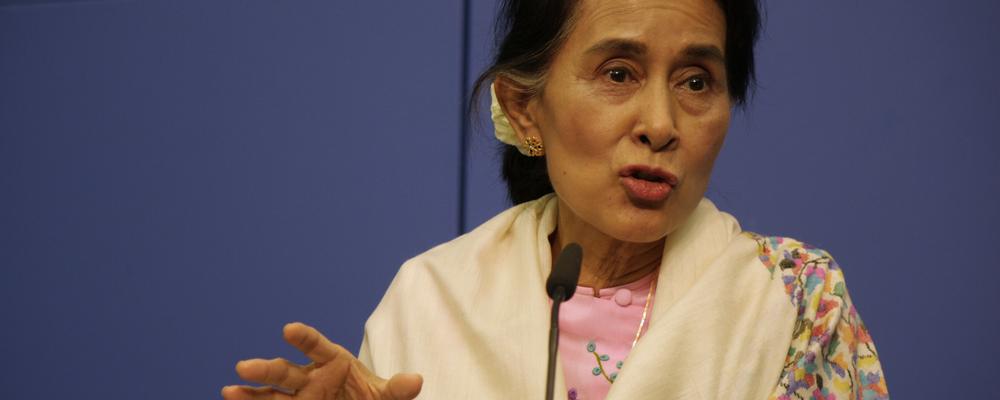Researcher Paul Vrieze, who studies Myanmar’s political transition and minority rights, answers three questions about the unfolding situation.
Why is this happening?
“In recent days, tension had been building after the army and its proxy party in parliament demanded in vain that the NLD and the Union Election Commission investigate the election results over alleged massive fraud. Independent observers had declared the vote free and fair. But the army said it was seizing control as the NLD’s refusal to investigate fraud claims had violated the constitution’s Article 417 against ‘acts or attempts to take over the sovereignty of the Union by insurgency, violence and wrongful forcible means’.”
“It is difficult to understand what motivated the military to take such drastic steps and do away with the new political system it had crafted, which had gained much international praise and stimulated rapid economic growth. In recent weeks, there was speculation among some analysts about Army Chief Min Aung Hlaing’s desire to become president with the help of the army’s proxy party (Union Solidarity and Development Party) because he would be scheduled to retire in July. Following the NLD’s massive election win in November, that possibility looked remote and quite possibly Senior-General Min Aung Hlaing’s political ambitions motivated the army’s actions—but as always in Myanmar, understanding the generals’ deliberations is anyone’s guess.”
What will happen now?
“A broad crackdown on human rights and freedoms is likely in the coming days and weeks. Along with the detention of some 30 NLD leaders, MPs, chief ministers of states and regions, there are also reports that several leading activists and ethnic minority party members have been arrested. The NLD’s Facebook page released a statement, reportedly pre-prepared in case of a coup, saying, ‘The public is urged to fully oppose the military coup and resoundingly resist against it.’ If this call to action is genuine and the public takes to the streets, the country could be entering a dangerous phase of contention. So far, independent media outlets, such as Frontier Magazine and Myanmar Now, are still reporting freely and many activists are speaking out against the coup. It is critical for our understanding of what is happening in the country that civil society’s hard-earned freedoms remain intact in the coming period.”
“International condemnation and shock have been swift, with the United States, European Union and United Nations issuing strong statements. If this is eventually followed by broad international sanctions this could push Myanmar and its economy back into isolation, while the military government could return to its previous, close relations with China.”
What does this mean for the minorities of the country?
“Myanmar’s myriad ethnic minority groups are likely to suffer further as their hopes for introducing federalism under the democratic opening are dashed. The coup likely dealt a death blow to the nationwide ceasefire process between the government and ethnic minority armed organizations. The ceasefire process began in 2011 in tandem with the democratic opening and had been reasonably successful as it brought in ten armed groups into an agreement to cease fighting and to hold a dialogue to find a political solution. In recent years, however, the process had already slumped, while the conflict between the army and some non-signatory ethnic armed groups had escalated.”
“For the more than 1 million stateless Rohingya, who reside in western Myanmar and in refugee camps in Bangladesh, the coup also greatly dims hopes for a better future. Even with the NLD in government, there was little progress towards a solution or an investigation into genocide allegations by army soldiers against their people. And the chances for this to happen any time soon have only grown slimmer with the military back in full control.”
